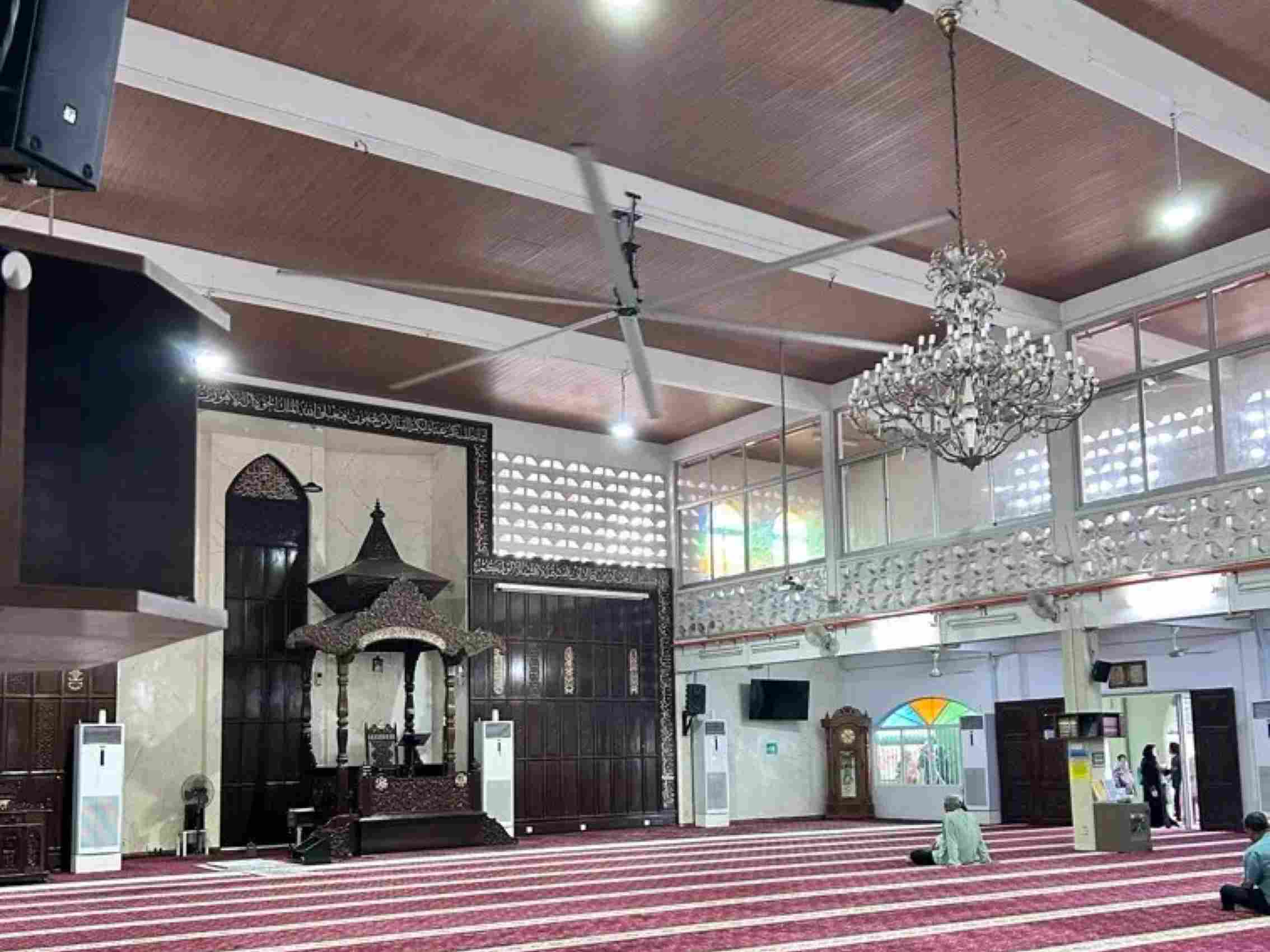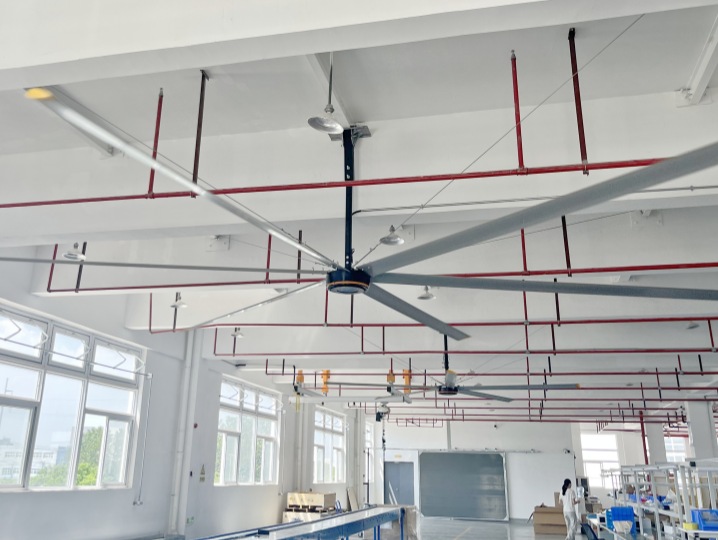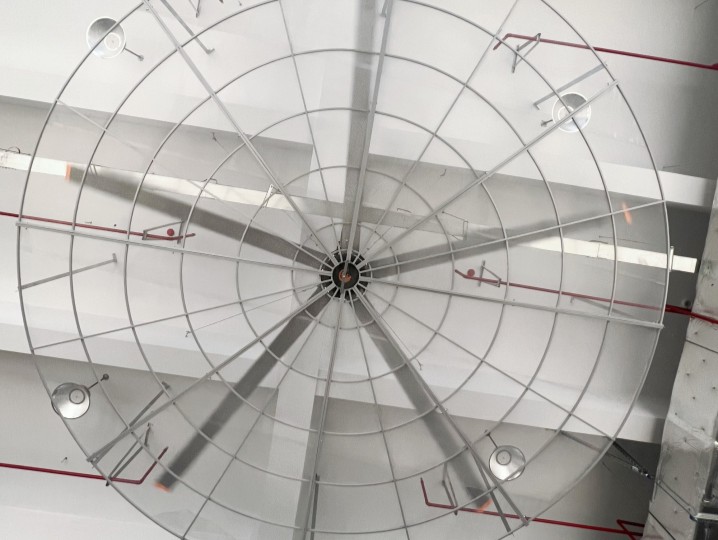Enhancing Public Comfort with HVLS Ceiling Fans
In public spaces, creating a comfortable and inviting environment is essential for ensuring visitor satisfaction and promoting efficiency. From transportation hubs to community centers and large retail areas, high-volume low-speed (HVLS) ceiling fans have become a reliable and energy-efficient solution for air circulation and climate control. These fans deliver consistent performance across various public settings, making them indispensable in modern environmental management.

Enhancing Comfort in Large Public Spaces
Public places such as airports, train stations, and convention centers often encompass vast open areas with high ceilings. Traditional cooling systems struggle to maintain consistent air circulation in these environments, leading to discomfort for visitors and staff.
HVLS ceiling fans excel in such spaces by creating a gentle, continuous breeze that improves air circulation. By lowering the perceived temperature by up to 6°C, these fans ensure a more comfortable environment, even in crowded conditions. Additionally, they reduce the strain on HVAC systems, contributing to energy efficiency and cost savings for facility operators.
Supporting Efficiency in Retail and Community Spaces
In large retail stores, shopping malls, and community centers, maintaining a pleasant atmosphere is critical for encouraging longer visits and enhancing user experience. HVLS fans ensure uniform air distribution, eliminating hotspots and ensuring consistent comfort across expansive areas. Their quiet operation ensures that shoppers and visitors enjoy a peaceful and pleasant environment.
For community halls, gyms, and recreational facilities, HVLS fans provide the dual benefit of temperature control and improved air quality. By promoting continuous airflow, these fans reduce humidity and prevent stale air, ensuring a healthier indoor environment for diverse activities.
Sustainable Climate Control for Public Areas
Sustainability is a growing priority in public infrastructure, and HVLS ceiling fans play a significant role in achieving this goal. Designed for low-energy consumption, these fans provide effective air circulation while using minimal power. When integrated with existing cooling or heating systems, they enhance overall efficiency, allowing facilities to reduce energy costs and carbon footprints.
Moreover, many HVLS fans feature smart controls that allow for precise adjustments based on occupancy and environmental conditions, further optimizing energy use. This makes them a key component in building sustainable public spaces that prioritize both user comfort and environmental responsibility.
Conclusion
HVLS ceiling fans are redefining public space management by combining energy efficiency, superior air circulation, and user comfort. Whether in transportation hubs, retail centers, or community facilities, these fans ensure a pleasant and sustainable environment for all. As public spaces evolve to meet modern demands, HVLS fans will continue to be an essential tool for efficient and eco-friendly climate control.
 New Year Holiday Notice
New Year Holiday Notice
 Large Ceiling Fans: The Soluti
Large Ceiling Fans: The Soluti
 Enhancing Public Comfort with
Enhancing Public Comfort with
 Fall Prevention Measures for L
Fall Prevention Measures for L
